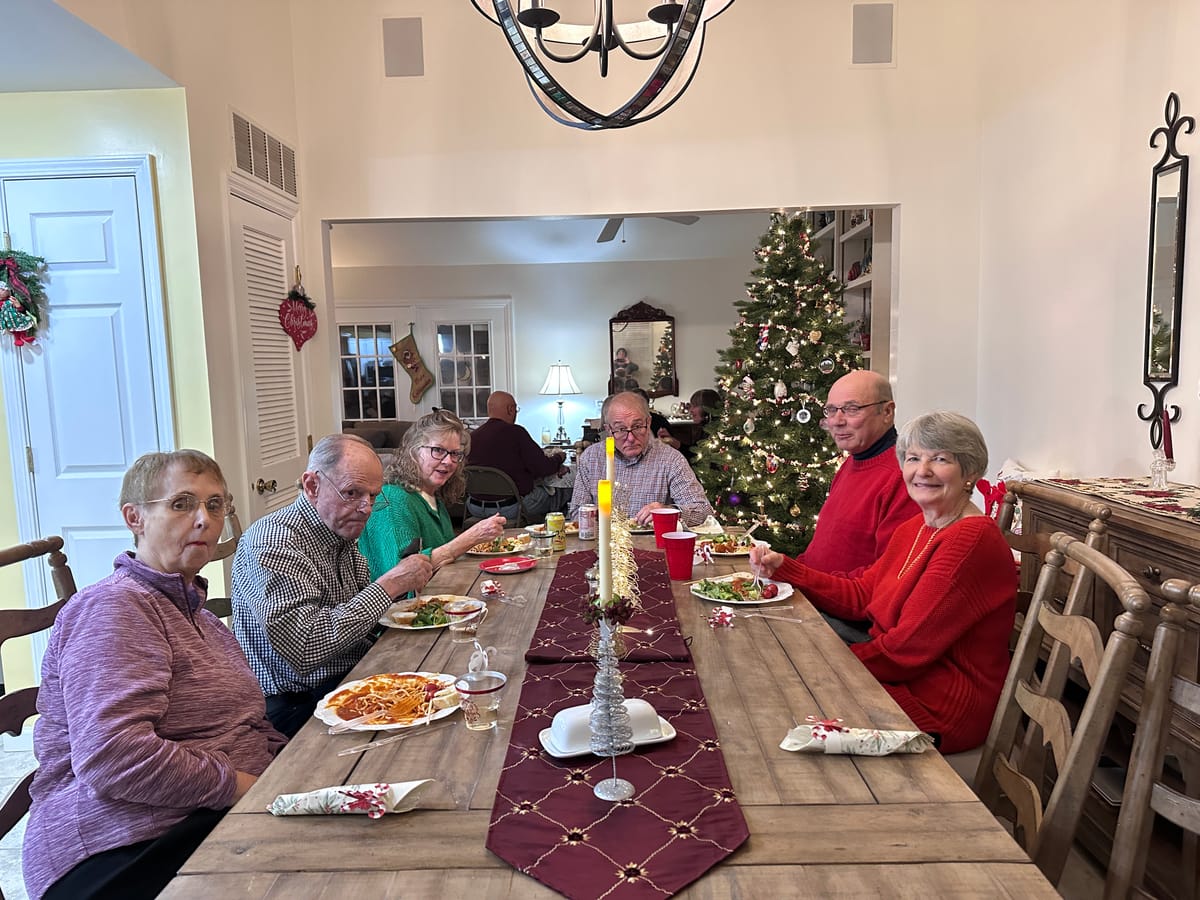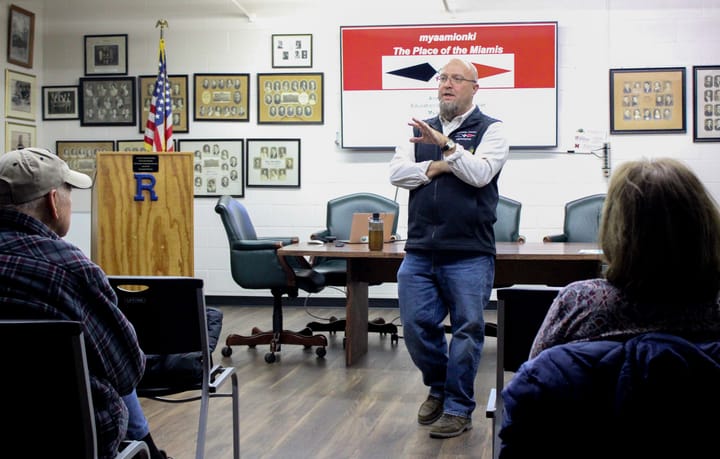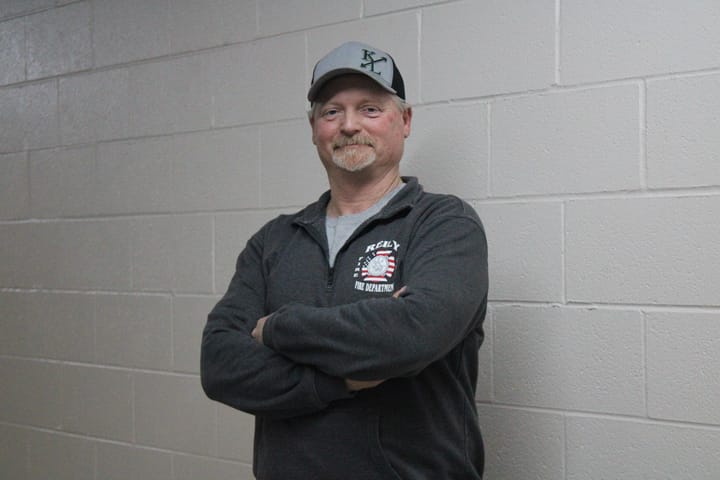Oxford residents with Parkinson’s can look to three local organizations
Instead of driving hours outside of Oxford, local residents with Parkinson’s can attend three different organizations for support.

Each year, nearly 90,000 people in the United States are diagnosed with Parkinson’s Disease. With approximately 1.1 million total cases, it is the second-most common neurodegenerative disease in the country behind Alzheimer’s.
Although Cincinnati holds multiple support groups and programs, the hour-long drive from Oxford has proven to be discouraging for local residents with Parkinson’s. Instead, locals can participate in various support groups in town that aid those with Parkinson’s, as well as caregivers.
People may not be diagnosed with Parkinson’s until years after noticing the symptoms, such as slowed movements, tremors and muscle stiffness. For Tari Tharp, a leader in the Oxford Parkinson’s Support Group, her diagnosis five years ago confirmed her suspicions after experiencing tremors and changes in her posture.
“I’m a person that wants information, so I did a lot of reading,” Tharp said. “I talked to other people I knew who had Parkinson’s, and some of them really inspired me. Some people had Parkinson’s for 15 years, and they’re still going. They’re still really pushing themselves.”
The degenerative nature of Parkinson’s means that symptoms worsen as time goes on. With no current cure, people with Parkinson’s acknowledge that treating the disease is impossible. Instead, the focus is on slowing the progressive symptoms and protecting the individual for as long as possible.
“Normally, when there’s some kind of illness, you see light at the end of the tunnel,” said Judith Zinsser, another leader in the Oxford Parkinson’s Support Group. “There’s some kind of cure or there’s some operation. We’re used to that in our culture, we’re used to there being some answer. This is something where there's no answer.”
Having a support group in Oxford alleviates the stress for people like Zinsser, a caregiver for her husband with Parkinson’s.
“The problem is that any place you went, you had to drive to Cincinnati, or you had to drive to Richmond,” Zinsser said. “As people age, [they] don’t drive. Driving into Cincinnati is a big deal for us.”
The support group, which meets once a month at the Oxford Bible Fellowship, connects people with the disease as well as caregivers and allows them to talk about their experiences. They discuss their doctor visits and what conditions they’re in, but they also talk about their individual successes.
“We try to talk about things we can do,” Tharp said. “One person talked about how he had totally built a car from scratch. Someone else played a musical instrument. I was a children’s librarian, so I told stories one night at the support group … We’re all individuals, and so we bring that to the support group, but then we’re also in this together.”
A primary concern for those with Parkinson’s is struggling with speech and swallowing. The disease is associated with a lack of dopamine in the brain, which affects the motor system.
Dr. Renee Gottliebson, a speech-language pathologist and associate clinical professor at Miami University, works to protect people’s speech and voices through the Speak Out program.
“It’s all the same mechanism,” Gottliebson said. “Their larynx, the voice box, is part of the aerodigestive system and is the entrance to the airway. If you can keep a good, strong voice, you’re also protecting your lungs from foods and liquids going down the wrong way. If they keep doing their exercises and keeping their speech and voice strong, they’re going to have a safer swallow.”
Speak Out is a nonprofit organization started by the Parkinson’s Voice Project aimed at helping people retain their speech and swallowing functions. In both individual and group sessions, people perform speaking exercises, starting with basic warmups and working towards more complex sentences.
Dr. Gottliebson said these exercises help folks speak and count with intent, which keeps their voice strong. Although these exercises protect a strong voice, she also wants to protect the swallowing function. People with Parkinson’s are at a higher risk of developing pneumonia, one of the most common causes of death for people with the disease, due to a deteriorating swallowing mechanism.
“We want them to communicate clearly for as long as possible, [and] we want them to still have engaged social lives for as long as possible,” Gottliebson said. “But a lot of our speech and voice exercises ultimately help keep them healthy by keeping their swallow safer.”
The disease also makes people more likely to suffer from falls and balance issues. The Parkinson’s Foundation recommends that people with the disease participate in physical activity of some kind to protect their motor functions.
People in Oxford can do so with Rock Steady Boxing, a non-contact boxing program.
Rock Steady Boxing originated in Indianapolis in 2006. The program reached Oxford two years ago but was shut down due to a lack of funding. Thanks to a collaboration between TriHealth and Miami, it returned to the town in March of 2024 with head coach Nancy Malay.
The group meets three times a week at Chestnut Field House. Beyond boxing with a punching bag, they practice balance and flexibility training. Erin Jennings, an assistant coach and the associate director of fitness at Miami’s recreation center, explained that these exercises can benefit people with Parkinson’s and older people in general.
“Continuing to move and work on your strength and your balance and your coordination has been shown to have a tremendous effect on that aging decline and slowing it down,” Jennings said.
Malay said the group aspect of Rock Steady Boxing has a profound mental impact as well. For people with Parkinson’s, gathering together and socializing can be a motivator to come back and share their experiences.
“The benefits in general throughout our lives as we age are tremendous,” Malay said. “Having camaraderie in your path amps that up further. But when you have a condition that is going to be an ongoing thing, it’s worthwhile for you to put the time and effort into optimizing as much as you can in your life.”
The camaraderie from the support groups in Oxford has proven to be helpful for those with the disease as well as family members and caregivers. The regular meetings allow people to share their experiences and successes, as well as encourage others to keep their heads up.
“I’ve gotten to know some people I never crossed paths with before,” Tharp said. “[I] found encouragement and strength from sharing with other people.”




